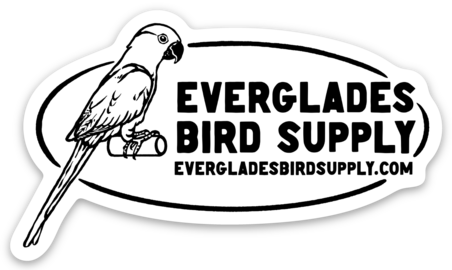Are birds able to identify themselves in a mirror?
Yes, some birds are able to identify themselves, but it depends on the species and what you mean by “identify.”
Self-Recognition in Mirrors
- Magpies (a type of crow relative) have shown the ability to pass the mirror test, which is often used as a marker of self-awareness. In one study, magpies were able to recognize a mark on their own bodies only visible in a mirror, suggesting they knew the reflection was themselves—not another bird.
- Most parrots, however, do not consistently pass the mirror test. They often react to their reflection as if it's another bird, especially when they’re young or not socially experienced.
Cognitive Recognition
Even if they don't recognize themselves in a mirror, many birds show complex cognition and social awareness:
- Parrots and corvids (like crows and ravens) can recognize other individuals, remember voices, and even understand some social dynamics.
- Parrots may recognize their own names or specific calls associated with themselves, which is a form of identity awareness.
Signature Calls
- Some bird species like parrots and dolphins use signature calls, which function similarly to names. These are unique vocalizations that they use to identify themselves and others in their flock.
- So, while not all birds show mirror self-recognition (which is just one type of test for self-awareness), many demonstrate an awareness of their own identity in social and vocal contexts.
Is it safe to have a mirror in my birds cage?
Mirrors can be safe in a bird's cage, but there are important pros and cons to consider, especially depending on your bird’s species and personality.
Potential Benefits:
- Stimulation: A mirror can provide visual stimulation, especially for birds kept alone.
- Comfort: Some birds may treat the mirror like a companion, reducing loneliness temporarily.
Possible Downsides:
- False Social Interaction:
- Birds (especially parrots, budgies, and cockatiels) may think the reflection is another bird.
- This can cause confusion or obsessive behavior like feeding the mirror, guarding it, or vocalizing constantly.
- They might form a strong attachment, which can hinder bonding with real humans or birds.
- Aggression or Frustration
- Some birds may become territorial or aggressive toward the reflection.
- This could lead to stress or even self-harming behaviors like feather plucking.
Mirrors can be okay in moderation but shouldn’t be a bird’s only source of interaction. It’s better to offer natural toys, foraging puzzles, and regular social time.
Magpies Self-recognition
Magpies are a standout example of birds showing mirror self-recognition, a rare trait among animals.
Here's a quick breakdown of that famous magpie study:
- Researchers placed colored stickers on magpies’ throats in places they couldn’t see without a mirror.
- When given access to a mirror, the magpies pecked or tried to remove the sticker, suggesting they understood the image in the mirror was themselves.
- When no sticker was used, or a clear sticker was placed (so there was nothing odd to see), the birds did not react the same way — ruling out random behavior.
Why does this matter?
- The mirror test has long been used to assess self-awareness in animals. Passing it suggests the animal:
- Understands that the reflection is not another animal.
- Recognizes the reflection as “me.”
Besides great apes, dolphins, elephants, and a few other animals, magpies are among the very few non-mammals known to pass this test.
This implies that complex cognitive abilities evolved independently in birds and mammals, a fascinating case of convergent evolution.







